In the last few weeks of classes before summer vacation, over 1,000 graduate student workers have walked out of the classroom and onto the picket line. After months of trying to barter with administration and gain recognition as a union, grads were ready to shake things up.
How did it get to this point? A lot has to happen before a strike is considered. Workers realize that a strike is an extreme measure that should only be used as a last resort. The workers have to overwhelmingly agree that a strike is necessary. 97.8% of graduate workers voted yes to the strike.
Indiana Graduate Workers Coalition has been pleading for an end to mandatory fees, annual wage increases and more inclusive benefits. They believe that the best way to generate consistent dialogue with administration is through forming a union.
“For years we’ve been saying our wages just are not adequate for living in Bloomington. They’re not competitive. They’re not recruiting top grad students to come to this university,” strike planner Katie Shy said.
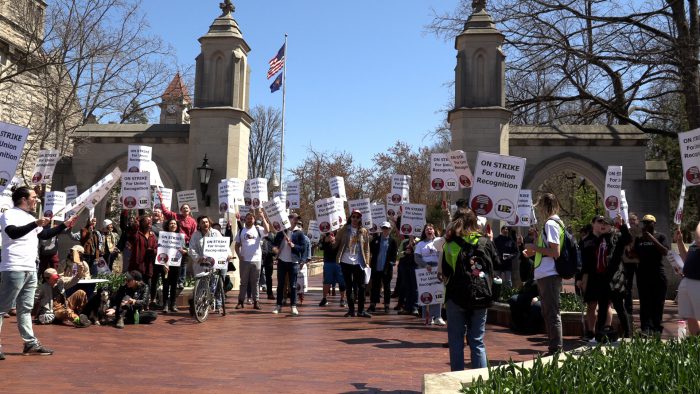
Hundreds of strikers gathered at Sample Gates and across campus to spread their message of unionization.
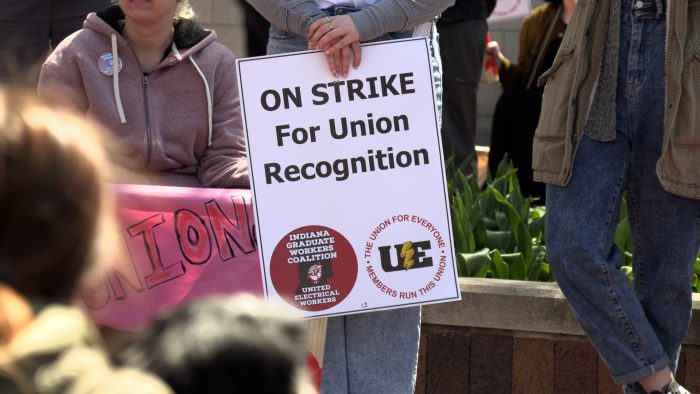
Graduate workers created picket signs and handed them out to anybody wishing to show support during the strike.
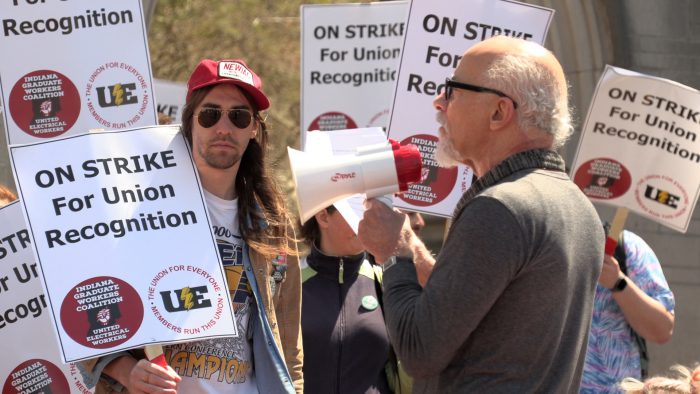
An IU faculty member speaks to the crowd of strikers, showing his solidarity with graduate student workers.
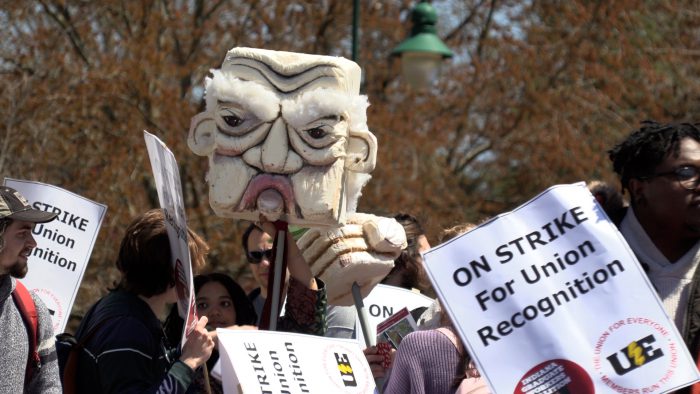
Many of the strikers carried homemade signs in addition to the provided picket signs. This sculpture was among them.
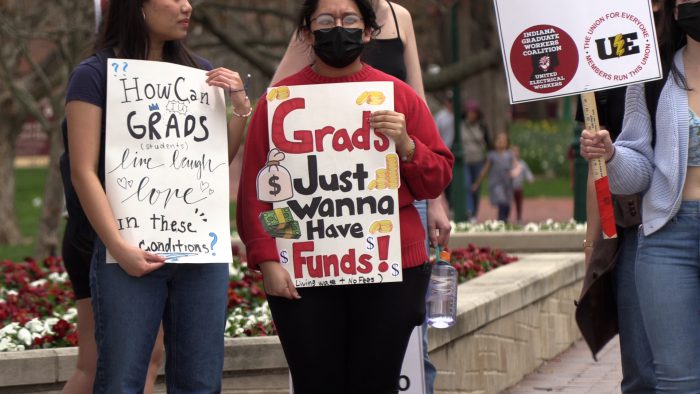
Two strikers hold homemade signs with clever phrases on them.
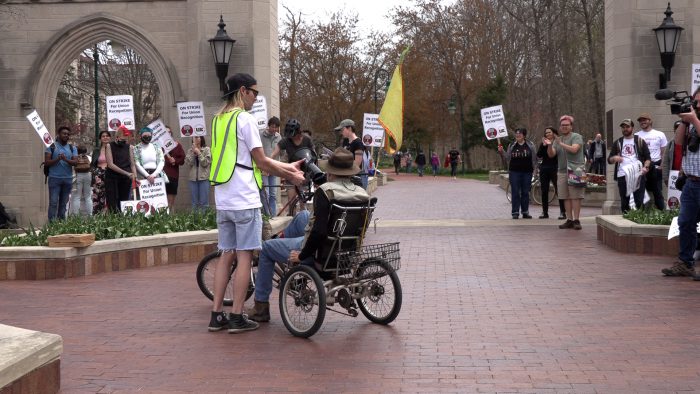
A member of the Bloomington community addressed the crowd to show support for the strike.
IU policy lays out a clear path that must be followed in order to achieve union recognition. According to the Indiana Graduate Workers Coalition website, union recognition means that “IU agrees to negotiate over university policies that affect graduate workers with an elected negotiating committee of graduate workers”. In accordance with IU’s policy for union recognition, IGWC would have needed to sign up a majority of graduate workers on union cards. The next step was to deliver these cards to administration where a vote for or against a union would be held. Despite their efforts, administration has been resistant to their demands. With each rejection from the university, IGWC got closer and closer to striking.
Graduate student workers hope that a work stoppage will motivate administration and other university supporters to look more seriously at the prospect of unionization. Along the way, IGWC has gained support from Bloomington community members such as City Council Member Isabel Piedmont-Smith, university faculty and various departments, undergraduates, and parents of undergraduates.
Perhaps most integral to their success, is the alliance they forged with United Electrical Workers, an established labor union whom the grads have relied on for legal guidance and assistance in negotiating with the university.
About UE, Shy said, “They are a very member-controlled union, so we on the ground are making all the decisions about our union. We’ll be the ones bargaining with IU. There’s no outside party coming in.”
The graduate workers decided that they would strike until administration agrees to meet with them and vote on a union. They have yet to get a promising response from the university.
It is unclear how exactly the strike will impact students and professors in the final days of the semester. One thing is for sure though: the fight for better working conditions for graduate students will go on.
Shy is happy to devote her time to the cause.
“When you put your energy and your free time together with other people and when you get to communicate to other people that I’m doing this to make our lives better, it doesn’t feel like my free time went away,” Shy said. “It feels like wow, these extra hours were full of something really meaningful.”












